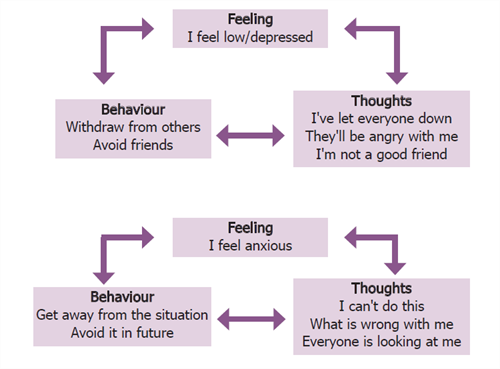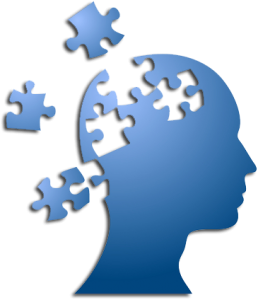
Cognitive Behavioral Therapy Program
• 6-week Program.
• One session per week at a time that suits you.
• One to one support.
• Individually tailored, Workbook included.
• €300
So what is CBT?
Cognitive behavioural therapy (CBT) is a form of psychotherapy that focuses on adjusting thoughts, emotions and behaviours, by questioning negative or irrational beliefs. CBT is an effective treatment approach for a range of mental and emotional health issues. It aims to help you identify and challenge unhelpful thoughts and to learn practical self-help strategies. These strategies are designed to challenge your thinking pattern to bring about immediate positive changes in your quality of life.
CBT can be good for anyone who needs support to challenge unhelpful thoughts that are preventing them from reaching their goals or living the life they want to live. It aims to show you how your thinking affects your mood. It teaches you to think in a less negative way about yourself and your life. It is based on the understanding that thinking negatively is a habit that, like any other habit, can be broken
How does the CBT Programme work?
Our CBT 6-week programme aims to help you deal with overwhelming problems in a more positive way by breaking them down into smaller parts. One to one sessions will focus on the main issue you wish to address, along with the workbook. You're shown how to change these negative patterns to improve the way you feel. Unlike some other talking treatments, CBT deals with your current problems, rather than focusing on issues from your past. It looks for practical ways to improve your state of mind on a daily basis.
CBT programme aims to teach people to have control over their thoughts, feelings and behaviours. This helps the person to challenge and overcome automatic beliefs, and use practical strategies to change or modify their behaviour. The result is more positive feelings, which in turn lead to more positive thoughts and behaviours.

What happens in the CBT 6-week programme?
When you sign up for this programme you will be assigned a counsellor that suits your availability. Sessions are weekly or fortnightly, with each session lasting for 50 minutes, either in the centre or online. During the sessions, you'll work with your counsellor to break down your problems into their separate parts, such as your thoughts, physical feelings and actions.
You and your counsellor will analyse these areas to work out if they're unrealistic or unhelpful, and to determine the effect they have on each other and on you. Your counsellor will then be able to help you work out how to change unhelpful thoughts and behaviours. After working out what you can change, your counsellor will ask you to practise these changes in your daily life and you'll discuss how you got on during the next session.
The aim of therapy is to teach you to apply the skills you have learnt during sessions to your daily life. This should help you manage your problems and stop them having a negative impact on your life, even after your programme finishes.
The programme is tailored to each individual and will vary according to the person’s problem. However, CBT typically includes the following:
• Assessment – this involves exploring what you are experiencing and noting distressing symptoms. You will be asked to complete tasks in the workbook provided so that you and your counsellor can identify problems or symptoms that need extra attention
• Goal setting – your counsellor helps you to draw up a list of goals you wish to achieve (for example, you may want to overcome your shyness in social settings). Together, you and your counsellor work out practical strategies to help fulfil these goals
• Practise of strategies – you practise your new strategies with your counsellor. For example, you may role-play difficult social situations or realistic self-talk (how you talk to yourself in your head) to replace unhealthy or negative self-talk.
• Homework – you will be expected to actively participate in this programme. You are encouraged to use the practical strategies you have practised during the course of your daily life and report the results to your counsellor. This can be done in a note book or on the workbook depending on the issue.

Who is this Programme for?
CBT has been shown to be an effective way of treating a number of different mental health conditions:
Anxiety Depression Eating disorders – Anorexia & Bulimia Panic disorder Phobias Obsessive Compulsive Disorder (OCD) Low self-esteem Irrational fears
Post-traumatic Stress Disorder (PTSD) Sleep problems – insomnia Suicidal Ideation
Substance misuse Emotional/Behavioural issues for children & teenagers Bipolar Disorder
Before choosing the CBT 6 Week Programme, issues you may like to consider include:
• CBT may not be the best form of therapy for people with any type of brain disease or injury that impairs their rational thinking.
• CBT requires you to actively participate in treatment. For example, you will be asked to keep detailed diaries on thoughts, feelings and behaviours. If you are not prepared to put in the work, you may be disappointed with the results.
• While CBT is considered a short-term form of psychotherapy, it may still take months or longer for you to successfully challenge and overcome unhealthy patterns of thinking and behaviour. Behaviours can take a lifetime to build. so its understandable that it will take time to break them.

© Copyright resolvecounsellingcentre.ie